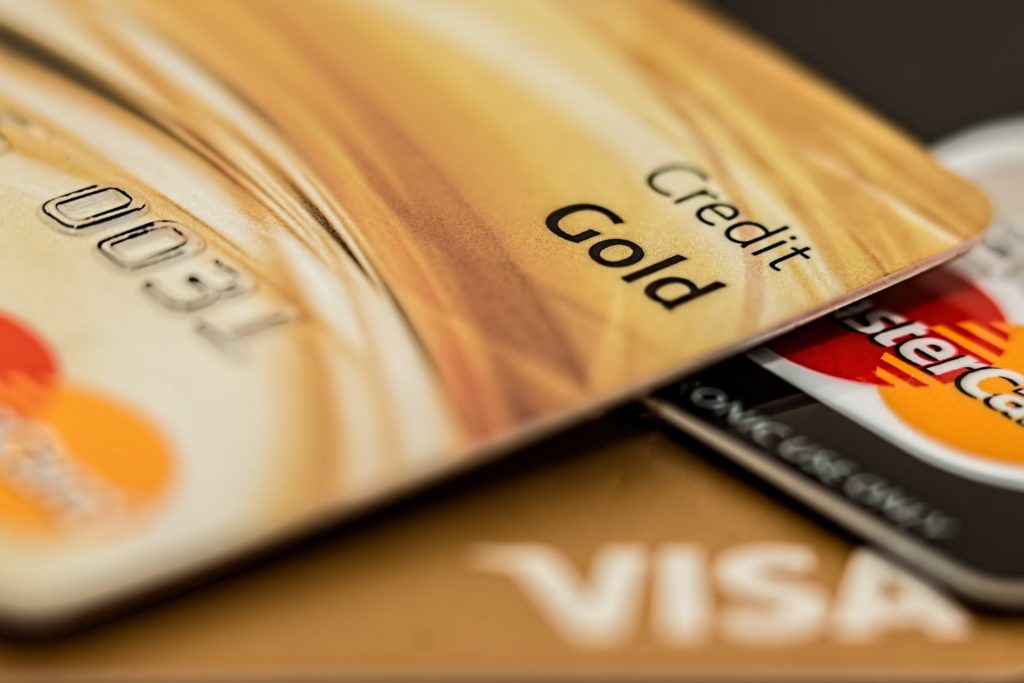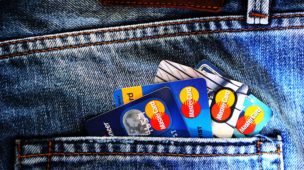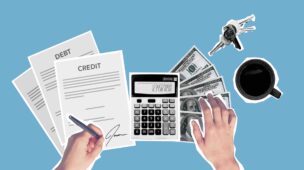Reading time: 3 minutes
This post may contain affiliate links. If you click these links and purchase something we may earn a commission. This helps us provide the information here free of charge to you. Continue Reading.

A majority of Americans’ credit scores are impacted by credit card debt. Why is this true? Well, 189 million Americans have credit cards. And a HUGE majority of those cards are in use right now.
The average credit card debt per household is around $9,000 as of the last count. However, those calculations were before Covid-19, which likely has many people living on borrowed money at the moment.
Paying off credit card debt and staying on top of any future debt is a great way to improve your credit score. We’ve already gone over some excellent debt payoff strategies, but let’s take a look at how credit card debt is impacting your credit score.
Opening A Credit Card Affects Credit Card debt & Credit Scores
Just the process of applying for and opening a credit card can affect your credit score in ways that are both good and bad. First off, applying for a credit card can lower your score if you apply for cards at many different institutions or from different providers.
Second, a portion of your credit score comes from the age of any open accounts. If you have accounts that are relatively new (less than 60 days), your score may be affected negatively.
I am no financial professional, but my advice (and that of actual professionals) is to try to keep your available limit versus the amount you’ve used to about a 30% ratio.

Using A Credit Card Affects Your Credit Score
As you can likely surmise from the information above, using a credit card can raise or lower your score.
A large portion of your credit score is affected by how much available credit you have to use versus how much of it is used. So opening a credit card with a $5,000 limit and only using $1,000 of it will boost your score by a lot.
Paying your credit card bills on time can drastically improve your credit score overtime. Alternatively, not paying your credit card bills on time can lower your credit score by up to 50-100+ points.
If you’re going to use them, then ALWAYS pay your credit card bills on time!
Closing A Credit Card Can Hurt Your Credit
Closing a credit card does not make your debt go away. Furthermore, closing a credit card account means you have just instantly reduced the amount of credit available to you.
Remember how a few paragraphs above I said that a portion of your credit score is calculated by looking at your available credit compared to how much of that credit you’re using?
Closing your credit card will drastically reduce that ratio, which, in turn, will hurt your credit score.
Credit Cards Can Be Good and Bad
Credit cards and, more importantly, how you manage them can and will affect your credit score drastically in both good and bad ways. Unless you’re facing an emergency, then you should always try to pay your credit card bills on time every month and in full if possible.
I always try to recommend the Personal Capital app because it syncs up and consolidates your finances in one place so you can keep a closer eye on all of your credit cards and bank accounts.









